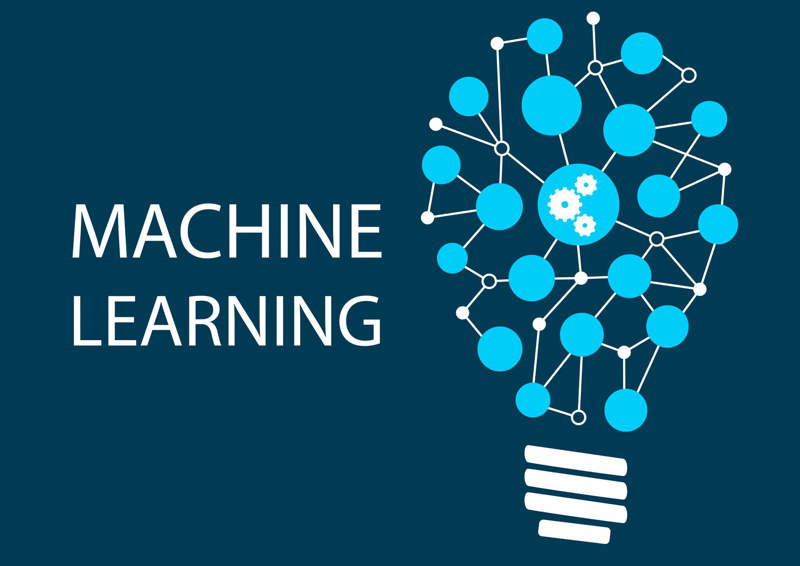Machine learning is a type of artificial intelligence that allows an algorithm, system or piece of software to learn and adjust without being explicitly programmed to do so. This allows technology to teach itself over time, so that it can improve operations.
Machine learning typically uses observations or data to train a computer model. Patterns in the data, combined with predicted and actual outcomes are analyzed through machine learning and used to improve how the technology functions. This cycle repeats, further refining the technology as it’s exposed to more information.
Machine learning has several applications in the supply chain, including data analysis, supply chain optimization, cost reduction, planning and forecasting.
How Machine Learning Relates to the Supply Chain
Modern, international supply chains generate vast amounts of complex data. Machine learning can analyze this information and use the findings to enhance supply chain management (SCM).
Optimize the Speed of the Supply Chain
Machine learning can analyze timings and handovers as products move through the supply chain. It can compare this data to benchmarks and historic performance to identify potential holdups and bottlenecks and make suggestions to speed up the supply chain.
Forecast Likely Demand From Customers
Data can be sourced from many areas like the marketplace environment, seasonal trends, promotions, sales and historic analysis. Machine learning will combine this data to predict demand for specific goods and help to manage the sourcing and manufacture of those products.
Plan the Movement of Goods Based on Demand
Efficient supply chains rely on products being in the right place at the right time. Machine learning can assess customer requirements and optimize the upstream supply chain. It matches the timely supply of goods with marketplace demands.
Manage Suppliers and Documentation
Dealing with suppliers is one of the most challenging parts of SCM. Machine learning can analyze the types of contracts, documentation and other areas that lead to the best outcomes from suppliers and use those as a basis for future agreements and administration.
Ensure Quality from Suppliers, Products and Assets
Quality is vital to good SCM as waste and faulty products create unnecessary rework and increase costs. Machine learning can monitor how quality varies over time and suggest improvements. This doesn’t just apply to materials and products. It can track other areas such as shipping, supplier and third-party quality.
Blume Global uses AI and machine learning to solve supply chain issues.
Why Machine Learning Matters to the Supply Chain
Machine learning delivers several benefits for SCM:
- Organizations in the supply chain do not need to hold as much inventory because machine learning optimizes the flow of products from one place to another
- Costs are reduced due to machine learning driving quality improvement and waste reduction
- Products arrive in the marketplace “just in time” for sale as a result of upstream optimization
- Supplier relationship management becomes easier due to simpler, proven administrative practices
- Stakeholders get more insight into meaningful information, allowing for continual improvement and easier problem solving
How Blume Global is transforming supply chain management.
The Challenges of Using Machine Learning in the Supply Chain
Machine learning depends on reliable, high-quality and timely information. A lack of access to good data can cause significant issues for machine learning in the supply chain. A robust approach to collecting and analyzing data is a priority for supply chain managers:
- All organizations in the supply chain should provide information in a consistent way.
- Where possible, SCM software should integrate with supplier and manufacturer systems to automatically collect and process data.
- Supply chain information should be checked and audited periodically to ensure quality.
- Machine learning models should be tested and checked to make sure outputs and suggestions are aligned with business needs and expectations.
Use Cases for Machine Learning in Retail and Manufacturing Supply Chains
There are plenty of good use cases for optimizing a supply chain through machine learning:
- Stock level analysis can identify when products are declining in popularity and are reaching the end of their life in the retail marketplace.
- Price analysis can be compared to costs in the supply chain and retail profit margins to establish the best combination of pricing and customer demand.
- Upstream delays can be identified, allowing for contingency planning or alternative sourcing.
- Retailers can link sales and promotional activities to demand and supply planning so that stores do not run out of stock.
- Retailers can lower storage costs due to not having to hold as much stock.
- Analysis of commodity prices and weather patterns can optimize harvesting for food manufacturers.
- Manufacturers can increase speed to market by optimizing contracts and reducing turnaround times with upstream organizations.
contact us
Contact Us

